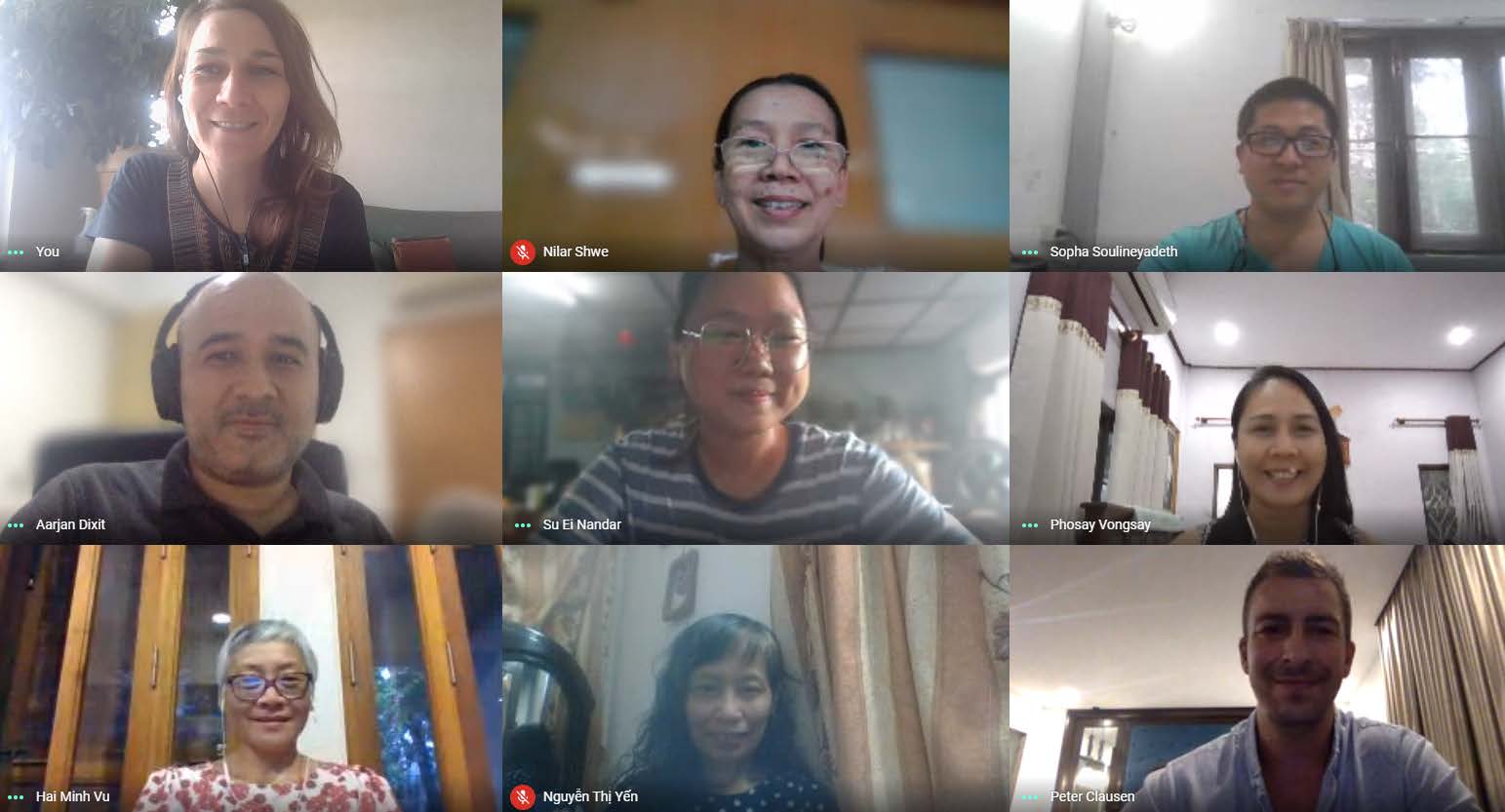What Happened to the Book: Lower Mekong – Regional Climate Strategic Outlook
In early 2021, following one year of Covid-19 travel restrictions, we had the privilege to come together with a group of CARE colleagues from Myanmar, Vietnam and Laos in a two-week Virtual Book Sprint. It was organized by Peter Bruun Clausen, Asia Regional Advisor at CARE International, who had participated in a Book Sprint in 2017 and has wanted to use the method again since then.
When the country directors of CARE agreed to go through a process of designing a regional climate strategy for the Lower Mekong, he took the opportunity and asked us to facilitate that process. Since the founding of our Sprintlab, we gladly accept such requests for projects that are not exactly a Book Sprint but still rely on collaborative-knowledge production and a short time frame. This time, the goal was to carve out a regional integrated approach for climate action and develop strategic recommendations for CARE decision-makers in the Mekong region.
Sprint Lab Case: Sprinting a Climate Strategy Paper
Since this Sprint was done during the pandemic, we designed the virtual process with a specific selection of facilitation techniques, many different brainstorming exercises, and tools for analysis and strategic planning. We also weaved in many social activities for the eight authors, some of whom have never met before, to get comfortable with each other, create trust and agree on the objectives, scope and style of the strategic outlook paper from the beginning. Despite external social challenges that caused delays in the Sprint process, the authors were brilliant and came out of the Sprint with a successful product.

Karina Piersig joins authors from Myanmar, Laos, Vietnam and Denmark for the 2021 remote, virtual Sprint.
After the Sprint
We caught up with Peter recently to learn what happened to the product of the Sprint afterwards. He shared with us that the product was incredibly useful to CARE in various ways over time. In the immediate period after the Sprint, “it had value in setting the narrative of what CARE was, at that moment, in the region.” Peter told us. “However, it loses that value over time as it gets outdated. So now its value is more of documenting our past experience, which is not bad at all [because] NGOs have high staff turnover and we tend to lose institutional memory.” This is just one example of the longevity of the value of a product of a Sprint – its use case might shift over time, but still remain incredibly useful.
“Aside from the book itself, what we took away from it is that it helped build a regional identity for the different country teams.” Peter added. ”That was part of the purpose of the Book Sprint and fully accomplished.”
Ultimately, Peter believes the Book Sprint was impactful for the team at CARE, even if the Sprint was used in a different way than normal. This Sprint was used to create a strategy, and Peter commented that “Let the book sprint be a creative process, and create the strategy later.” This is something they’ve internalized as a learning and plan to do differently in their upcoming Sprint in Copenhagen this 2025.
We also look forward to a Sprint with CARE’s Ghana arm this coming August 2024. We’re honored to have been part of CARE’s story in so many places around the world, and thank our champions and partners at CARE for championing the value of what we do for teams like yours.
Keep an eye out for more Sprint updates in the future! Never miss an update with us by following us at the links below.
—
Got a great idea? Tell the world with us through a Book Sprint.
Send us a message on IG, LinkedIn, or at contact@booksprints.net
